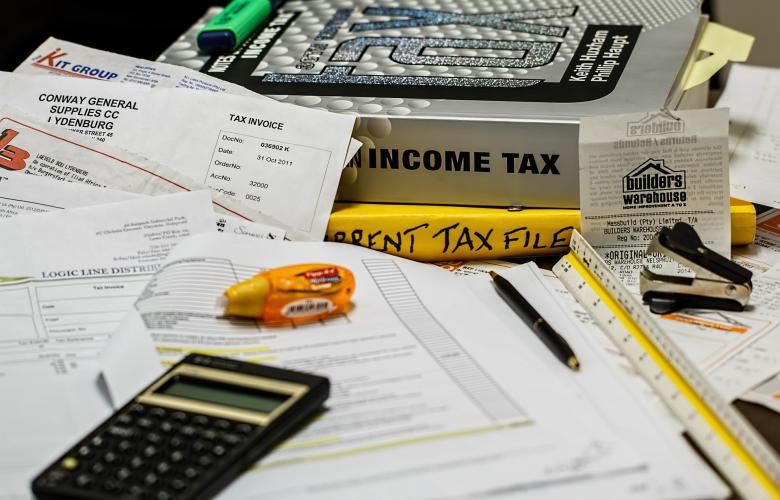Very important information to read:
This article is intended as a preliminary guide only and refers to some but not all elements required to consider in detail prior to starting any property dealings or due diligence. Property dealings are often complex, especially in foreign countries and we highly recommend you seek independent professional advice... read more... In 1789 Benjamin Franklin is credited with writing a letter to French scientist Jean-Baptiste Leroy where he famously said, "In this world nothing can be said to be certain, except death and taxes."
For many years however, paying taxes as a foreigner in Indonesia was not something too many people took too seriously, and many in fact, didn't.
But as the Multilateral Convention to Implement Tax Treaty Related Measures to Prevent Base Erosion and Profit Shifting (shortened to Mulilateral Instrument or MLI) is being enforced in efforts to lessen the opportunities for tax avoidance and free trade agreements are being signed, Indonesia is applying international tax regulations in line with many trading partners and other countries around the world.
Am I liable for Personal Income Tax in Indonesia?
If you are a foreigner living and working in Indonesia and you meet certain criteria you will be considered an Indonesian resident and that means you are liable for Personal Income Tax.
Once this happens taxes have to be paid on the income earned within Indonesia as well as any income earned from working abroad.
An article published last year by Luke Carney on Business Brain offered a simple and easy to understand breakdown of points to be aware of, and comply with, if you are a foreigner earning money in Indonesia.
According to Carney, there are two key factors to take into consideration with regard to Personal Income Tax and it's important for foreign workers to understand under which tax regime they may be liable as well as any exemptions they are entitled to.
The two important factors to consider are:
- The amount of time you spend in the country over a 12-month period.
- The relationship your home country has with Indonesia over tax, specifically if there is a dual tax treaty.
Carney notes "there is some good news for those individuals who do not meet the residency criteria. Income earned within Indonesia will be taxable, however they are not required to pay tax on any income earned abroad. This non-resident group may further benefit if a tax treaty exists between Indonesia and the country of which they are a tax resident. Reductions in tax due will of course depend upon the terms of the treaty, however the financial benefit could be significant."
Are you an Indonesian Tax Resident?
As a foreigner, you are only liable for dual tax liability if you are classed as a resident. So what qualifies an expat as a resident in relation to the Indonesian tax system?
Quite simply if you spend more than 183-days over a 12-month period in Indonesia, irrespective of your visa, you will be classed as a tax resident of the country. And this means you are liable to pay tax on income earned abroad. It's important to note that if your home country has a dual tax treaty with Indonesia, like Australia and the UK for example, then the liability of paying tax on income twice in two different countries and tax systems is removed.
The intention to reside
This isn't such an easy criteria to enforce according to Business Brain. "If a foreigner moves their family to Indonesia with the intention of remaining in the country then they automatically qualify as an Indonesian Tax Resident irrespective of meeting the 183-day rule."
In essence the key criteria determining a foreigner's tax status is duration of stay or intended stay and not nationality.
It's also important to remember a foreigner will be considered a tax resident until the date of their departure from Indonesia.
As with most rules, there are exemptions. In the case of paying Personal Income Tax in Indonesia these include:
- Being a foreign diplomatic and/or consular personnel. Here it is understood and assumed that those in these positions will not be conducting any business in Indonesia. In addition their home country must offer reciprocal treatment to Indonesian staff abroad.
- Military personnel and civilian employees of foreign armed services.
- Representatives of international organizations, which are identified from time to time by the Minister of Finance.
What constitutes taxable income in Indonesia?
To understand what your personal tax liabilities are, you should first determine what constitutes taxable income within the Indonesian legal system.
According to Deloitte's Indonesia Tax Guide 2018 Handbook and Article 4, Chapter 3 of Indonesia's personal income tax code, taxable income is defined as:
- Employment income
- Income from the exercise of an independent profession or business venture
- Passive income (dividends, royalties, interest and insurance gains)
- Capital gains (from the transfer or sale of property)
- Rents and other income from the use of property
What are the tax rates?
When it comes to tax rates, understanding whether you are considered as a tax resident or not is the defining factor.
Residents are subject to a withholding progressive tax. And so their net taxable income is taxed at graduated rates, with current rates ranging from 5 percent up to a maximum of 30 percent, depending on an individual’s income.
While non-residents are subject to a final withholding flat tax of 20 percent on gross income.
Regarding the progressive tax that is relevant for an individual defined as a resident of Indonesia for tax purposes, it is currently structured around four income bands, with rates that apply to the fractional income within each band.
- Up to 50 million = 5%
- Between 50 - 250 million = 15%
- Between 250 - 500 million = 25%
- Over 500 million = 30%
Compliance obligations
As in most other countries there are employer compliance obligations for tax payments in Indonesia. What this means is tax is usually paid by means of withholding by the employer and this must be submitted to the government on a monthly basis.
There is also employee compliance on individual income taxes. Indonesia uses a self-assessment system under which all tax residents have tax filing obligations.
Annual tax returns need to be completed to calculate tax liability by March 31 in the following tax year. The tax return used for taxpayers receiving income from employment is Form 1770-S.
It is useful to note that in Indonesia the majority of Personal Income Tax is paid through statutory employer withholdings on earned income. However, for any other income that a taxpayer in Indonesia earns on a regular basis, they must make monthly provisional tax payments to the tax department based on the income earned in the previous year.
Other irregular forms of income are dealt with by the final annual tax return.
Filing your tax returns
In order to file a tax return, an individual has to register as a taxpayer and get a tax identification number, called an NPWP. Foreigners who are classed as tax residents must also have an NPWP. Those expats who don’t meet qualify as 'tax residents' are exempt.
What do you do if you leave the country?
As Carney suggests in Business Brain, "it can be notoriously difficult to see a clear picture through the, at times, murky bureaucratic world of red tape within the Indonesian immigration system. Upon exiting the country for a prolonged period it is highly recommended to make sure you cancel the tax registration to avoid any future misunderstandings, and thus avoid being continuously considered a tax resident and liable in Indonesia."
To do this you need to submit an application to the local tax office, which will then perform a tax audit on the your returns and supporting documents prior to granting approval to de-register.
A useful tip in this regard is to make sure all tax related documents are readily available just in case there is a tax audit. This includes things like bank statements, salary slips, foreign tax documentation if applicable, and work contracts.
What happens if I don't pay Personal Income Tax?
Quite simply, it's illegal. Failing to register a taxpayer's number is an offence under Indonesian law. Foreigners who are tax residents in Indonesia should be aware of the fact that not having an NPWP is illegal and the punishment could range from fines to imprisonment.
It is also worth noting that employees without an NPWP are subject to a 20 percent tax surcharge.
The bottom line
As a foreigner working and living in Indonesia you should follow the country's laws and regulations, as you would expect foreigners to do in your home country. And if you are a foreign resident in Indonesia and generating an income you are expected to pay taxes.
The amount of tax you pay is related to the income you earn.
If you work for a company your employer is responsible for deducting tax off your salary but it is your responsibility to register as a taxpayer and file your tax returns.
Sources: Business Brain, Deloitte, Indonesia Tax Office (Pajak.co.id), Expat Briefing, ASEAN Briefing, OECD
Similar to this:
16th Economic Policy Package relaxes regulations on foreign owned businesses in Indonesia
Are investors waiting for April's elections?
Construction Boosting Bali's Economy
Very important information to read:
This article and the above linked articles are not complete and are intended as preliminary guides only. These guides refer to some elements to consider prior to starting any property dealings or due diligence. Property dealings are often complex areas, especially in foreign countries and we highly recommend you seek independent professional advice... read more... 




